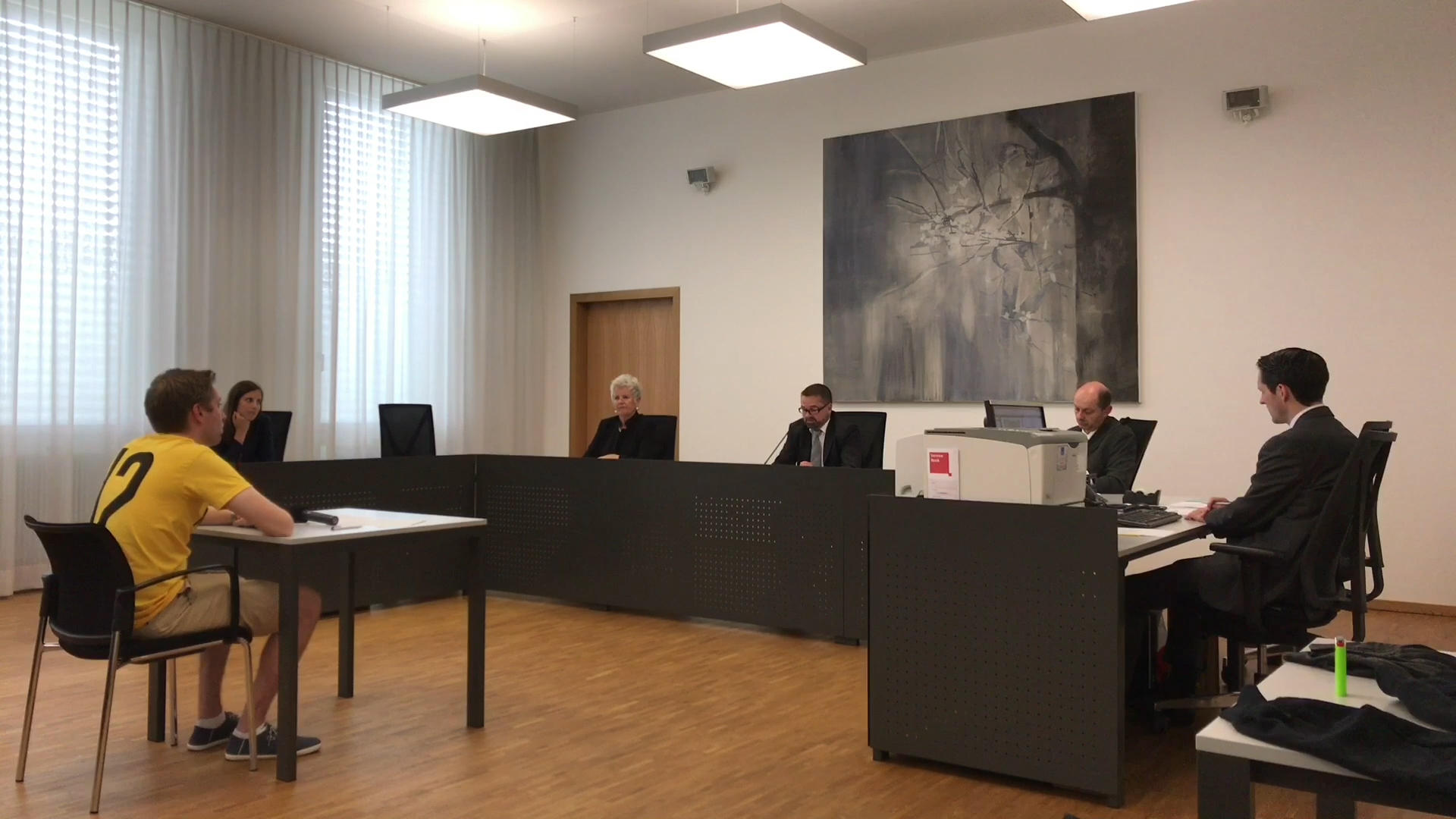Swiss justice system to get a digital makeover

The planned digital overhaul of court procedures and law enforcement agencies in Switzerland faces surprisingly little opposition.
It’s a common method: Let’s wait and see …. what mistakes other countries make before Switzerland finally launches its own and improved project.
It’s a gigantic undertaking to digitalise the country’s entire justice system by 2026, including the courts, the prosecutor’s offices and the prison systems, directly affecting the work of defence lawyers, both at a federal level as well as in the 26 cantons.
Legal dealings are to be managed electronically in the future by way of a central online entry portal to the Swiss justice system, known as Justitia.SwissExternal link.
Communication between the parties involved in a legal procedure will be digitalised. Paper documents are to be replaced by electronic files.
Switzerland lags behind many other countries, which made the leap a long time ago. Brazil for instance introduced a law in 2005 to allow legal procedures to be managed electronically.
European countries, notably Austria, Denmark and Germany, have also moved to digitalise their justice systems.
Slow consensus
“Switzerland, with its consensus culture is slower than others,” says Andreas Glaser, professor of law at the university of Zurich. “The government can’t simply impose a digital reform.”

More
Justice
The federalist structure of the country, which gives the 26 cantons wide-ranging autonomy, doesn’t help either to push through changes, explains Glaser.
Observers point out that it is remarkable that all the different offices, courts, in the cantons and at a national level could agree on such a massive overhaul. It would have only taken one canton opposed to the project to derail it.
Jens Piesbergen, co-head of the Justitia 4.0 projectExternal link, acknowledges that Switzerland has a considerable backlog.
“It may also be down to the Swiss mentality. We’re rarely at the forefront and we don’t like to rush things.”
It’s an approach that has its advantages.
“We could see how other countries have tackled their reforms, for instance in Germany, Austria, Denmark, the Baltic states, Scotland, France, Spain, Italy and the principality of Liechtenstein. We learned from the mistakes of our partner countries and are trying to avoid the same traps. But by doing so, we may be making other mistakes, who knows?”
E-justice and e-voting
Surprisingly, there has been hardly any criticism of the planned digitalisation of justice procedures, given how much opposition there has been against e-voting projects, which were paused by the Swiss government for security reasons last year.
Franz Grüter, a parliamentarian for the right-wing Swiss People’s Party, who is at the forefront of efforts to push for an e-voting moratorium, supports e-justice.
“E-voting and e-justice are two entirely different projects and therefore the starting positions are completely different,” he says.
“As far as e-voting is concerned, it’s about trusting that the ballot papers in an election or a vote on an issue are counted correctly,” Grüter adds.“ Any tampering would affect society at large.”
+ Why e-voting is on the defensive in Switzerland
He insists that strict computer security requirements are necessary for the e-justice system. “But the impact of possible problems is not comparable with problems caused by flawed or hacked e-voting systems.”
It is an opinion shared by law professor Glaser.
“E-voting affects the general public and has huge potential for harm because it can distort a democratic decision. E-justice, on the other hand, concerns the individual sphere.”
Of course, it can have significant repercussions when case files are made public.
“But it only concerns an individual case, and the person concerned can be compensated for damages,” says Glaser.
He points out that similarly sensitive sectors, including e-banking or tax returns, have already been digitalised.
Public debate
But it is not all smooth running with the e-justice project. There is some controversy especially in the expert community, according to Piesbergen, co-head of the Justitia 4.0 project.
“We are still at an early phase and the media have yet to report broadly on the issue,” says Piesbergen.
The e-voting project is much more advanced and has therefore had more exposure in broadcast, print and social media.
“We expect discussions about e-justice will be in the public sphere once parliament begins debating the issue,” he says.
The Swiss government plans to send a draft version of the bill for consultation during the course of this year.
Cyber attacks and extortion
There is another important difference between e-voting and e-justice. The senders of digitalised justice documents are always known. This makes it easier to protect the system against attacks.
Nevertheless, the risks of power cuts, lost files, cyber attacks, tampered data, identity theft among other issues are real. There was a case at a court in Berlin, Germany, last year when hackers stole data files.
“The theft often comes with an extortion attempt,” says Piesbergen. “The hacker encrypts a system and wants to be paid in bitcoins for unblocking access again.”
Those managing the Swiss e-justice project take into account possible threats and risks when designing a system and to develop defence strategies for future operations.
“There will always be risks,” says Piesbergen. “We have to keep them to a minimum and they must be manageable to ensure the credibility of the Swiss justice system is not dented.”
Open questions
Piesbergen says he can’t be specific about the costs of the massive Justitia 4.0 project at this stage.
It is expected to run into the millions of francs for an eight-year project, including operating costs. The total amount will be shared among the cantons and the courts.
Similar digitalisation projects in neighouring Austria and Germany came in at about CHF100 million.

More
A Swiss court throws opens its doors to visitors
Adapted from German/urs

In compliance with the JTI standards
More: SWI swissinfo.ch certified by the Journalism Trust Initiative













You can find an overview of ongoing debates with our journalists here . Please join us!
If you want to start a conversation about a topic raised in this article or want to report factual errors, email us at english@swissinfo.ch.